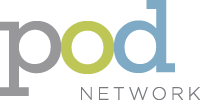Introduction
POD Scholar consists of short (up to 1600-word) guides for researchers (rather than guides about research) designed for new and experienced educational developers. The guides will serve as a toolkit that provides clear, concise explanations of various Scholarship of Educational Development (SoED) evidence bases, methodologies, and tools (including technologies). The guides will be peer-reviewed papers authored by small groups. This publication series supports POD Strategic Plan Goal 3: Build Organizational Capacity: Update and expand the POD Network’s organizational capacity to better meet its goals to enhance member benefits and elevate the field, and to support enactment of diversity and inclusion initiatives and evidence-based practices.
Previous POD Scholar Guides
Effective Survey Design for Research: Asking the Right Questions to Get the Data You Need
Sanders, M., Walsh, K., & Wheeler, L. (2021). Effective survey design for research: Asking the right questions to get the data you need. POD Scholar: Guides to Research, Scholarship, and Creative Activities in Educational Development, (2).
What Educational Developers Need to Know About COACHE Data
Benson, T., Cruz, L., & Mullinix, B. (2018). What educational developers need to know about COACHE data. POD Scholar 1 (1)
Call for Proposals
The POD Scholar Editorial Team is seeking high-quality proposals on topics of interest to members of the POD Network from teams of expert scholars representing an array of perspectives. The POD Network is committed to diversity, equity and inclusion and we are especially interested in receiving proposals from those whose voices are often underrepresented. Please share this call with colleagues who might be interested, especially those who identify as Black, Indigenous, Latinx, or Asian and/or LGBTQIA+.
Suggested topics include:
- Evidence bases (e.g. COACHE, TILT, COPUS, NSSE, archival materials, interviews, photographs, etc.)
- Methods (e.g. Participatory Research Design, Social Network Analysis, Visual Analysis, etc.)
- Tools (e.g. Tableau, NVivo, AtlasTI, SPSS, Gephi, etc.)
- Topics of Interest to Researchers in Educational Developers (e.g. Students as co-Researchers, What is SoED?, innovative or emerging methods, etc.)
A research guide may include the following sections:
- WHAT IS IT? Describe and provide examples
- WHAT DOES IT CONSIST OF? Steps, stages, data points included, functionalities of the tool, etc.
- HOW CAN IT BE USED? Examples of research that leverages this evidence base, method, tool, or topic. What research questions could this subject address?
- WHAT ARE ITS LIMITATIONS? Critical analysis of the subject
- HOW DO I GET STARTED? How do I get access to the tool or data source, or what is a reasonable entry point for learning more about the particular evidence base, method, tool or topic?
- HOW CAN I LEARN MORE? This section must include a Bibliography.
Please submit the following in a single, combined PDF file:
- a 300-word abstract that describes themes addressed, an outline of the overall structure, and selected references
- a 100-word explanation of the makeup and experience of the collaborative writing team (How were the members of your team chosen?), and
- CVs for all members of the collaborative writing team.
Review of submissions will begin August 27, 2021. Successful proposals will be notified by September 6, 2021. First drafts to be submitted to the editorial board by October 11, 2021, and final drafts to be submitted November 30, 2021 for external peer review.

